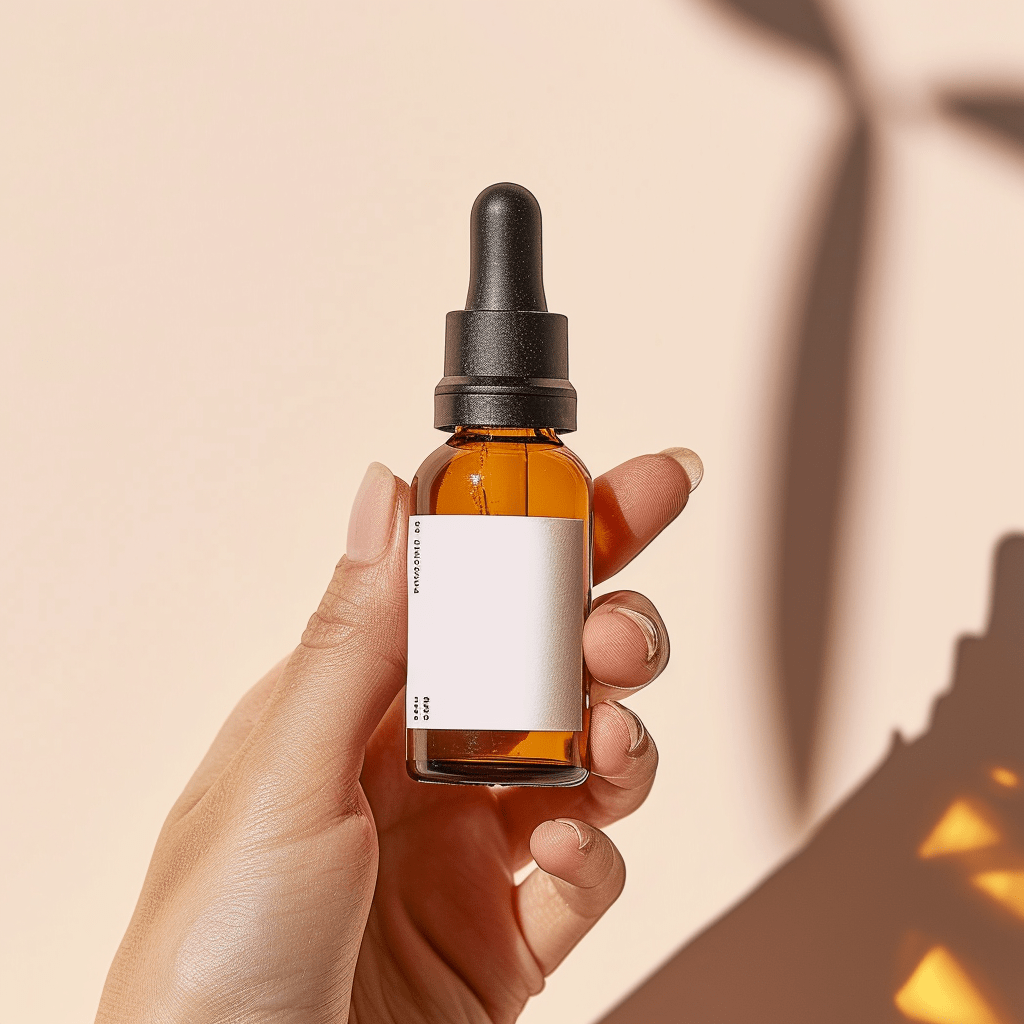A very common question we come across is: what happens when you stop using CBD oil? Concerns regarding dependence and withdrawal are frequent.
In Australia, CBD products have become synonymous with better health, relaxation and lower anxiety.
However, because of their effectiveness, increasing numbers of people are concerned about the potential for CBD oil to be addictive.
This is a misplaced worry.
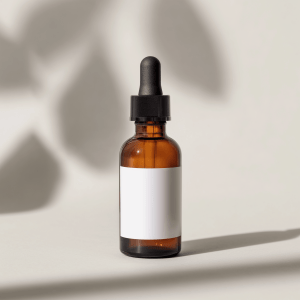
CBD oil doesn’t cause dependence. It’s not habit-forming, as it won’t affect your dopamine system. People commonly confuse it with medical cannabis products containing THC. THC is addictive for many and is more potent. It does have the potential for dependence.
Clarifying these differences is essential.
Products like CBD gummies are sourced from cannabis, but they don’t have THC in them. As such, you won’t get addicted or encounter withdrawal problems.

The opposite is true. CBD has capacities that help people to break addictions. Products like CBD oil (providing they contain no THC):
- Won’t get you high or intoxicated.
- Aren’t addictive or habit-forming.
- Can’t cause withdrawals.
- Are safe to stop using at any time.
The primary consideration when you stop using CBD oil is losing the immense benefits it provides for your well-being, particularly if you’re taking it for a specific condition like arthritis, anxiety or insomnia.
Let’s clarify some confusion around what happens when you stop using CBD oil. We’ll reveal whether CBD can cause addiction and if you can get withdrawals from them. Plus, you’ll learn how you can avoid the potential risks of dependence on CBD.
Contents
What Happens When You Stop Using CBD Oil?
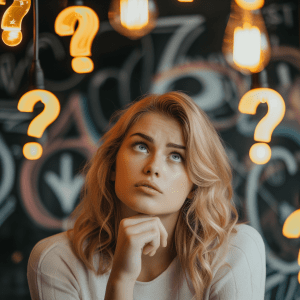
Considering stopping using CBD oil? It’s entirely safe to do so.
There are no real dangers if you stop using CBD oil. It isn’t addictive, so you won’t experience withdrawals.
However, there is one major potential downside of doing so.
Specifically, this downside can occur among people who are using CBD products for a specific condition.
For instance, this could be someone:
- Using CBD gummies before bed for mild insomnia problems
- Rubbing CBD cream on their joints to lower arthritis pain
- Taking CBD oil to soothe Irritable Bowel Syndrome flare-ups
It’s very common now for people in these types of scenarios to take CBD daily for their ailment. Using it daily is safe and carries low side effect risks. This safety is part of why CBD gummies or oils have become profoundly popular in countries like Australia. Such usage creates a form of reliance on the cannabinoid to keep a health condition in check.
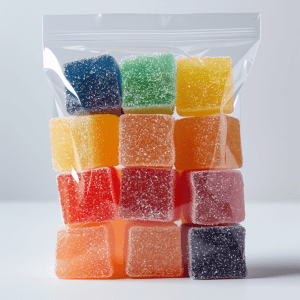
As such, removing it suddenly can cause problems with the condition’s symptoms rapidly returning. After people stop using CBD products for a condition, their symptoms can return strongly within days.
So, if you’re looking to stop using CBD oil, be mindful of the condition you began using it for in the first place. Ensure you are prepared for symptoms to return. Set a plan to counteract these symptoms without the help of CBD. You may need to seek out alternative treatments, therapeutic compounds or therapies. For example, those using CBD for mild sleep issues might look to try melatonin to help them sleep when stopping CBD use at bedtime.
Is CBD Addictive or Habit-Forming?
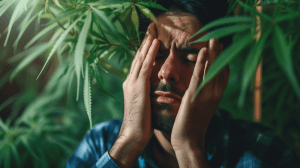
A key advantage of using CBD oil is its safety.
Unlike many therapeutic compounds, you can’t get addicted to CBD. This makes it entirely distinct from habit forming compounds like THC, opiates, benzodiazepene or SSRIs.
CBD is not addictive, physically or psychologically.
Why is this?
Cannabidiol (CBD) interacts with the body’s endocannabinoid system. Primarily, it functions through cannabinoid receptors that are part of this system. The benefits it provides are stimulated by indirectly acting on these receptors. Due to only interacting ‘indirectly’, it doesn’t encourage them enough to cause secondary mental effects. In contrast, compounds like THC directly stimulate the cannabinoid receptors in the brain. In doing so, THC works much more potently. It causes euphoria from the release of dopamine and endorphins.

Causing dopamine to be stimulated is a particular problem in using many bioactive compounds.
Dopamine is the neurochemical that controls motivation and reward. Overstimulating it can lead to addiction as the reward pathway becomes ‘hijacked’.
Compounds such as opiates or THC are ‘dopaminergic’. This means they can cause changes in dopamine release. When they are misused, this dopamine release becomes irresistible. It shapes someone’s behaviour into constantly seeking the ‘reward’ and feeling the chemical triggers. In other words, a habit becomes formed. Habit-forming compounds cause dependence and alter behaviour.
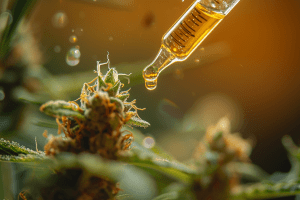
CBD isn’t habit-forming because it can’t stimulate the dopamine neurotransmitter in any way. It simply won’t cause the reward pathways to be stimulated in the same way as compounds like opiates.
This is true even when CBD is used in high doses daily. Its more mild than most therapeutic compounds and all-natural.
Clinical Research

Many clinical studies have demonstrated CBD’s non-addictive characteristics. In contrast, most researchers have commented on how safe and non-habit-forming the compound is.
According to the World Health Organization (WHO), CBD ‘does not appear to have abuse potential or cause harm’. The WHO concluded this after a wide-scale expert review into cannabidiol in 2017. A caveat was that this conclusion only applied to ‘pure’ CBD.
Safety when stopping CBD abruptly was confirmed in a 2020 clinical trial of the compound. This trial dosed 30 volunteers with high amounts of CBD daily over 4 weeks. Doses were then abruptly ceased across different groups of individuals. No withdrawal symptoms were observed among any of the subjects. The trial underscored that even large daily doses of CBD couldn’t stimulate dependence.
A smaller 2016 study of 31 adults similarly indicated CBD was not habit-forming. Yet this study showed THC had the opposite properties. After long-term use, abstaining from THC resulted in both physical and psychological withdrawals. Some of the withdrawal symptoms included increased heart rate and body temperature, irritability, problems with focus, and sleep issues. CBD displayed none of these withdrawal symptoms when usage was stopped.
Is CBD Addictive?
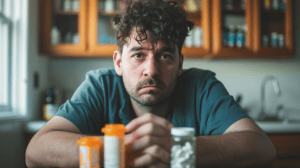
These studies imply that CBD itself isn’t a danger for causing addiction. However, it must be used on its own to maintain this safety. If consumed with THC or other compounds, there is undoubtedly potential for addiction. This underscores the need to avoid THC when buying CBD oil or similar products. Only shop for 0% THC-formulated products to avoid any dependence risk.
Contrary to causing addiction, the research is increasingly suggesting CBD may help to treat it. Studies have shown it can help with blocking withdrawal symptoms from opiate or alcohol withdrawal. Its calming properties make it therapeutically valuable for counteracting anxiety, stress and cravings from withdrawals.
In addition, CBD use is associated with reducing craving ‘cues’. Clinical trials have shown it is effective at preventing cravings from occurring by blocking their dopaminergic pull. Simultaneously, CBD reduces stress and keeps those with addictions calmer. This makes it easier to resist a craving and makes abstinence easier.
Can You Have Withdrawals from CBD Oil?
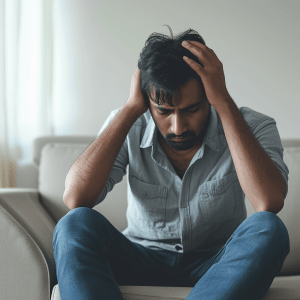
CBD oil isn’t a habit-forming substance, so it won’t cause any withdrawals if you stop using it.
Withdrawals can only occur from chemicals that are ‘physically’ addictive. This happens as the body becomes dependent on these substances. Removing them results in detrimental health symptoms.
For instance, if you discontinue using alcohol, nicotine or opiates suddenly, you could experience
- Irritability and mood changes
- Anxiety and stress
- Vomiting
- Sweating and blood pressure shifts
These types of withdrawal symptoms are worsened by abruptly ceasing the use of an addictive chemical. It’s commonly advised to ‘wean’ off them slowly. This means progressively reducing usage of the addictive compound over time before stopping. Doing so helps to mitigate withdrawal risks.
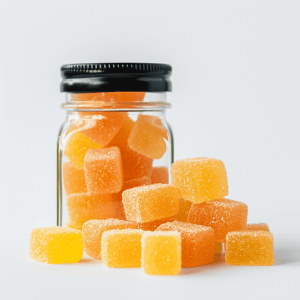
The same problems won’t occur when stopping CBD oil use. It can be stopped abruptly without causing any symptoms of withdrawal.
Over time, the body will adapt to CBD. You may need higher doses over time to maintain benefits from the cannabinoid. Yet, even using very high dosages doesn’t result in dependence. It’s a massive benefit of taking CBD oil or gummies. Their lack of addictive properties makes them incredibly safe, particularly amongst those who are prone to addictions.
Risks in Discontinuing CBD Use
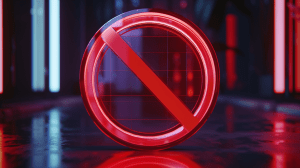
Although it is safe to stop using CBD oil at any time, there are certainly some risks in doing so.
It’s wise to be aware of these risks so you can prepare for and mitigate them appropriately.
Some of the main problems people see occur when they discontinue using CBD are:
- Return of Symptoms: expect to see detrimental symptoms come back quickly when you cease CBD oil use. Symptoms may return disproportionately strongly if you are taking very high doses of CBD. If possible, you should slowly reduce your doses before ceasing use to slow the return of symptoms.
- Potential Symptom Rebound: some people experience strong symptom ‘rebounds’ when they stop taking CBD. A rebound means symptoms become exacerbated and worse than their baseline for a brief period. This can happen when taking therapeutic compounds to treat a condition. If the remedy is suddenly removed, symptoms can quickly worsen before they return to normal levels. Be aware of this, as it can make the removal of CBD particularly painful in some cases.
- Mild Withdrawal Symptoms: CBD itself won’t cause withdrawal. But removing it can mean irritability, stress, anxiousness, or the return of sleep problems. These returning mental issues can be experienced similarly to standard withdrawal symptoms. While more mild, they can still be a source of distress for some. This problem tends to happen more commonly with those who use CBD for extended periods or at high dosages.
- Anxiousness: many people indeed rely on CBD gummies or oils to stay calm. When you stop using these products, you may see anxiety levels increase substantially. CBD is potently anxiolytic or anxiety-reducing. Taking it daily for stress management can create a form of psychological dependence. Heightened stress and anxiousness can occur when CBD is removed. Not everyone finds this a problem, though.
Risk Mitigation

The easiest way to minimise these risks when you stop using CBD oil is:
- Avoid THC: Avoiding any product with THC in it. THC is a cannabinoid like CBD but is entirely distinct from it. addictive and will worsen any withdrawals. Stick to CBD oil with 0% THC. Get a lab report to confirm the product’s purity.
- Keep dosages low: using less CBD reduces your reliance on it. This makes the impact of removing it less detrimental overall. Finding the lowest dose that works for you will also help to minimise side effect risks.
- Slowly cease doses: reducing your doses slowly over time before stopping them will help mitigate withdrawal risks from CBD. Weaning off CBD makes the discomfort of rapid symptoms return less. Taking this approach makes you less likely to experience a robust symptom rebound.
To re-iterate, CBD won’t cause classic withdrawal symptoms. However, individuals who have been using CBD for symptom management will experience a return of those symptoms when discontinuing CBD. This is not a genuine ‘withdrawal’ reaction but rather a reemergence of the underlying condition.
Takeaways

CBD isn’t addictive, and you can stop using CBD oil at any time without causing withdrawals.
The reason for this is that it isn’t a dopaminergic compound.
Pure cannabidiol cannot cause dependence or influence habit formation.
This makes it incredibly safe to take even for long periods without causing addiction. Studies like those from the World Health Organization have confirmed this safety.
The opposite is largely true. CBD is helpful in combatting addictions, preventing cravings and mitigating withdrawal symptoms. Using it can help with withdrawals when ceasing the use of addictive compounds like opiates.
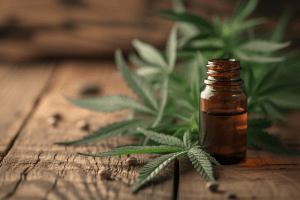
But if you rely on CBD oil for suppressing a particular condition like arthritis or anxiety, be conscious that removing CBD entirely will be problematic.
You may see symptoms return more strongly than they were initially experienced. This is more likely to happen if you heavily rely on more significant amounts of CBD.
You will likely feel more anxious, stressed and irritable when you stop.
Plan for these issues and slowly reduce your CBD use over time instead of stopping suddenly. Expecting symptoms to return and having a strategy in place to mitigate this is important.
FAQs
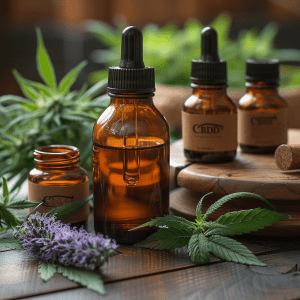
CBD can be stopped abruptly without causing physical withdrawal symptoms. It isn’t dopaminergic so won’t cause adverse reactions upon discontinuation. However, it’s always advisable to consult with a doctor before making changes to your CBD regimen. This is especially needed if CBD is used for a specific medical condition.
CBD is not associated with the development of withdrawal symptoms. Users typically do not experience physical discomfort, cravings, or mood disturbances when they stop using CBD oil. This makes it different to addictive substances like nicotine or alcohol. However, if CBD provides relief for specific symptoms, those symptoms will reemerge once CBD use is discontinued. It’s crucial to differentiate between a return of symptoms and actual withdrawal effects.
Taking a break from CBD is a personal choice. Some find it valuable to help minimise tolerance to the cannabinoid. But it often depends on individual needs, responses, and reasons for using it in the first place. Some also choose to take breaks to assess whether their symptoms persist without CBD. It can also be a good practice to reduce the likelihood of symptom rebounds when you stop using CBD oil.
References
- Babalonis, S., Haney, M., Malcolm, R.J., Lofwall, M.R., Votaw, V.R., Sparenborg, S. and Walsh, S.L. (2017). Oral cannabidiol does not produce a signal for abuse liability in frequent marijuana smokers. Drug and alcohol dependence, [online] 172, pp.9–13. https://www.ncbi.nlm.nih.gov/pmc/articles/PMC5361620/
- Verywell Mind. (n.d.). Is CBD Addictive? [online] Available at: https://www.verywellmind.com/cbd-addiction-can-you-get-addicted-to-cbd-5211798
- OTO WELLBEING. (n.d.). CBD Withdrawal Symptoms & Effects – A Comprehensive Guide. [online] Available at: https://otowellbeing.com/blogs/journal/cbd-withdrawl#:~:text=That%20being%20said%2C%20it’s%20important,of%20a%20pre%2Dexisting%20condition.
- Neurogan. (2024). Is CBD Addictive? Here’s What The Research Says… [online] Available at: https://neurogan.com/blogs/news/is-cbd-addictive-heres-what-the-research-says
- www.who.int. (n.d.). Drugs (psychoactive): Cannabidiol (compound of cannabis). [online] Available at: https://www.who.int/news-room/questions-and-answers/item/cannabidiol-(compound-of-cannabis).
- Taylor, L., Crockett, J., Tayo, B., Checketts, D. and Sommerville, K. (2020). Abrupt withdrawal of cannabidiol (CBD): A randomized trial. Epilepsy & Behavior, [online] 104, p.106938. Taylor, L., Crockett, J., Tayo, B., Checketts, D. and Sommerville, K. (2020). Abrupt withdrawal of cannabidiol (CBD): A randomized trial. Epilepsy & Behavior, [online] 104, p.106938. https://www.sciencedirect.com/science/article/abs/pii/S1525505019311163
- Prud’homme, M., Cata, R. and Jutras-Aswad, D. (2015). Cannabidiol as an Intervention for Addictive Behaviors: A Systematic Review of the Evidence. Substance Abuse: Research and Treatment, 9, p.SART.S25081. https://www.ncbi.nlm.nih.gov/pmc/articles/PMC4444130/
- Hurd, Y.L., Spriggs, S., Alishayev, J., Winkel, G., Gurgov, K., Kudrich, C., Oprescu, A.M. and Salsitz, E. (2019). Cannabidiol for the Reduction of Cue-Induced Craving and Anxiety in Drug-Abstinent Individuals With Heroin Use Disorder: A Double-Blind Randomized Placebo-Controlled Trial. American Journal of Psychiatry, 176(11), pp.911–922. https://pubmed.ncbi.nlm.nih.gov/31109198/
